Last week, on Nov. 28, high-pressure water cannons sent mourners running down Istanbul’s pedestrian shopping street, Istiklal Avenue. It was a grim conclusion to Turkey’s dizzyingly bleak week, as police violently dispersed the crowd commemorating Tahir Elçi, one of the country’s leading human rights lawyers.
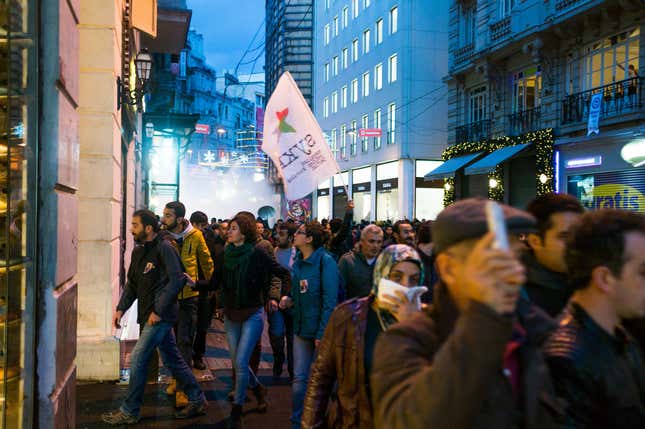
Elçi was killed at a press conference in the Turkish city of Diyarbakır early on Saturday, Nov. 28. He had been calling for an end to violence in Turkey’s largely Kurdish southeast, between the army and banned militant group the Kurdistan Worker’s Party (PKK).
After a ceasefire, attacks between the two sides started again in July 2015. The Turkish government regards the PKK as a terrorist organization, and Elçi landed in hot water back in October when he contradicted this view on television. He subsequently claimed that he received hundreds of death threats in response. The investigation into Elçi’s death is ongoing.
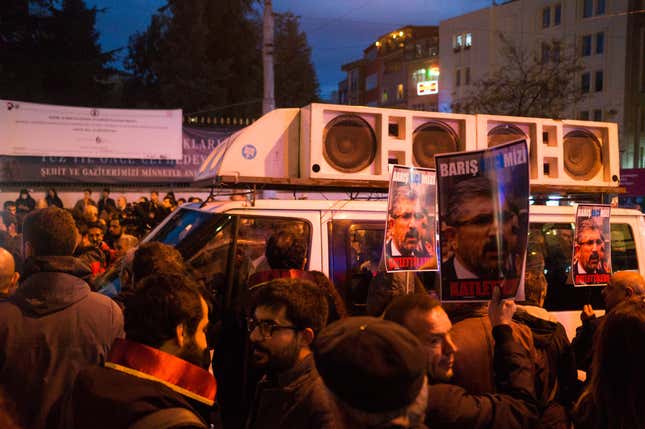
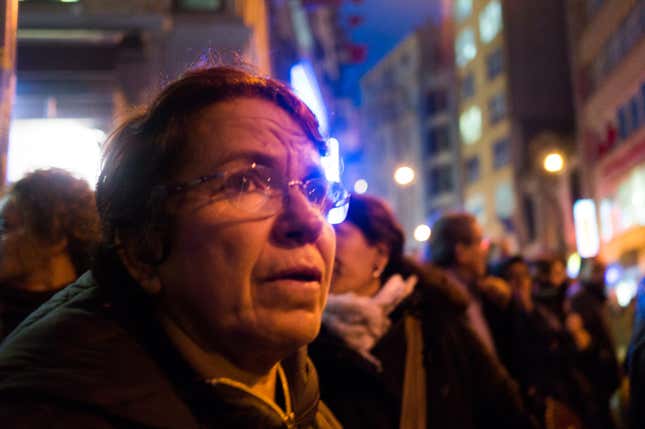
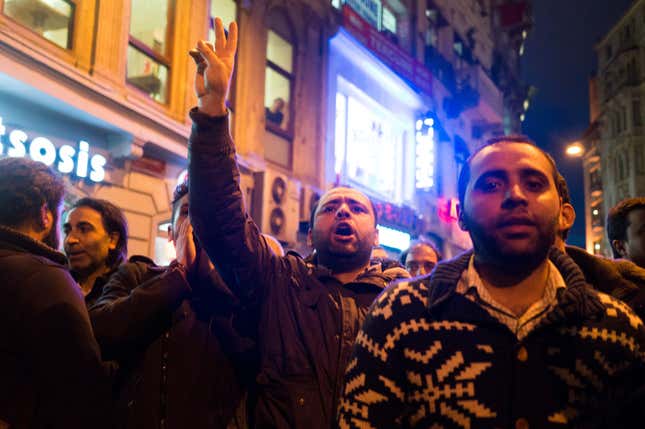
Elçi’s death came at a sensitive time for Turkey. Just two days prior, on Nov. 26, Turkish authorities detained editor-in-chief Can Dündar and Ankara bureau chief Erdem Gül of the leading opposition newspaper Cumhuriyet, and charged them with espionage. Earlier that year, the pair had published information that implicated the Turkish intelligence services in sending weapons to Syria.
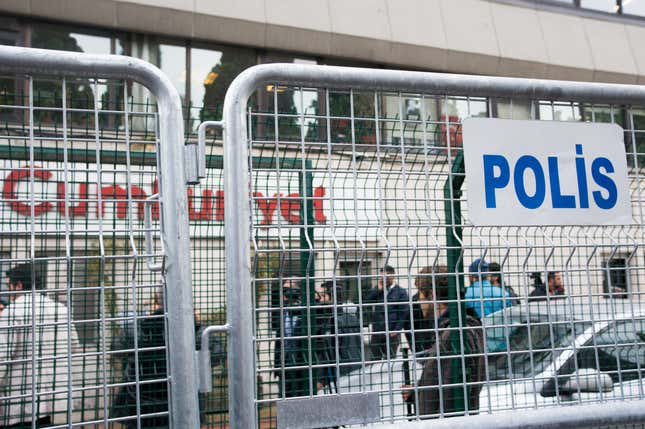
The arrest of Dündar and Gül is another stain on Turkey’s already dismal record with the press—the country already ranks 149th out of 180 nations for press freedom, according to advocacy group Reporters Without Borders.
On Nov. 27, nearly 2,000 people protested the arrest outside the newspaper’s Istanbul offices.
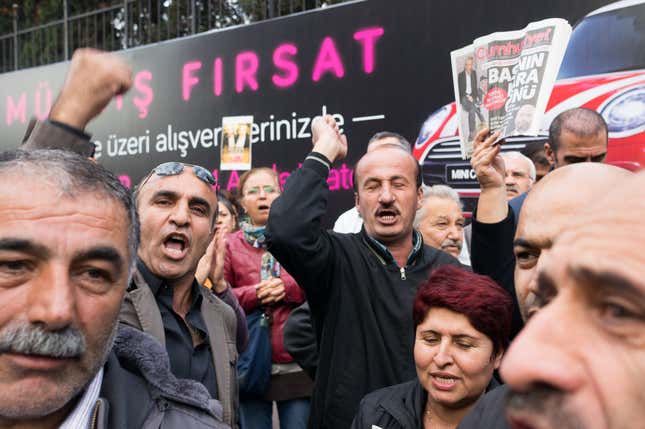
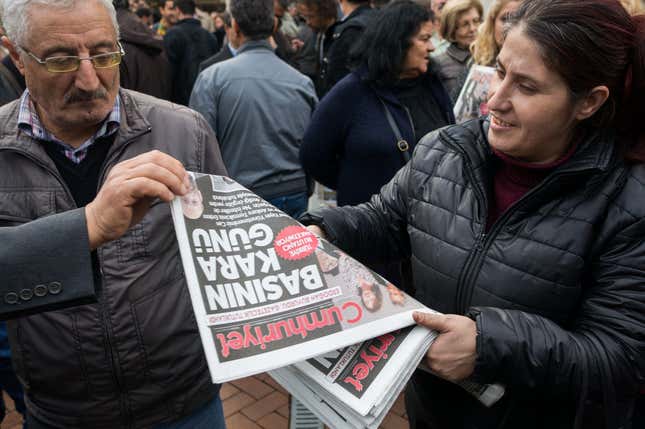
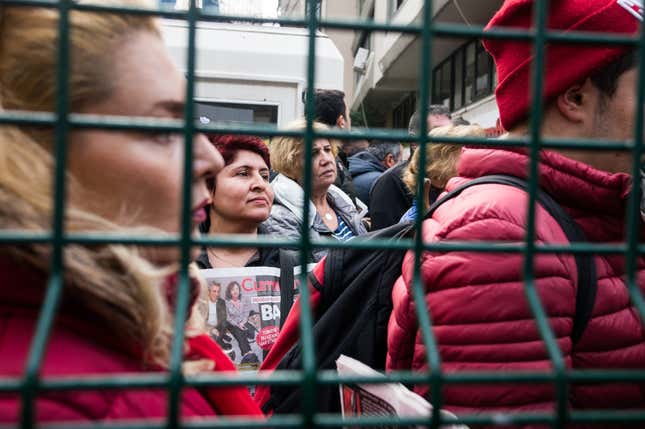
Of course, just days before that, the Turkish military shot down a Russian jet on Nov. 24. For several weeks, Russia had been aiding Syria’s Assad regime with aerial raids throughout the country—this particular jet passed over Turkish territory for only moments on its mission.
Relations immediately soured between the two countries, and protests in Russia have since seen public burnings of the Turkish flag. The Kremlin has sought to sever economic ties with Turkey and advised its citizens against traveling there.
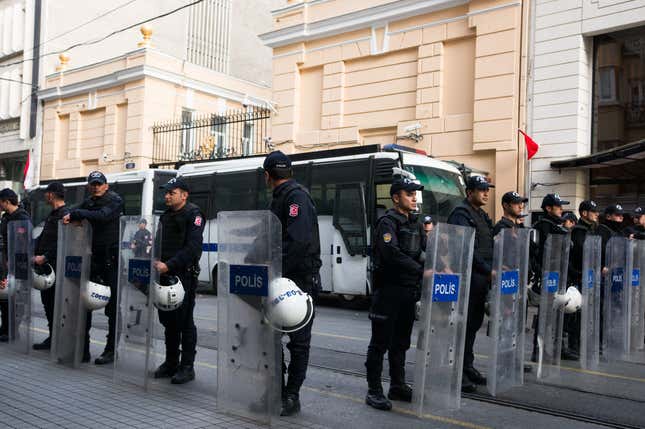
While the full consequences of Turkey’s rough week remain unclear, the most readily apparent effect has been an economic one. On Nov. 21, the Turkish lira was about 2.82 against the dollar. A week later on Nov. 28, the lira slid ten cents to 2.92. As of Dec. 3, the lira has come down slightly to to about 2.89.
Looking west, things might seem to be getting rosier thanks to a recent 3 billion euro deal with the European Union to reduce migrant flows, which comes with renewed discussion of Turkish access to the union. But Turkey still finds itself in a precarious position—as it grasps for solutions to violence in its southeast region, control of the press and the tumult spilling over from neighboring Syria, the streets of Istanbul seem increasingly restless, too.
